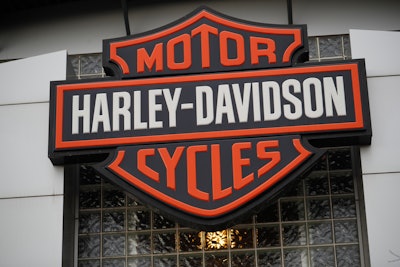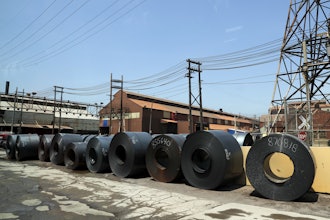
WASHINGTON (AP) — Federal regulators have accused Harley-Davidson and Westinghouse of imposing illegal warranty terms on customers and ordered them to fix their warranties and ensure that their dealers compete fairly with independent repair-makers.
The companies have imposed illegal warranty terms that voided customer warranties if they used anyone other than the companies and their authorized dealers to get parts or repairs — restricting their options and costing them more money, the Federal Trade Commission announced Thursday in actions against the Milwaukee motorcycle maker and MWE Investments, which makes Westinghouse-brand outdoor power generators and related equipment.
Under a proposed consent agreement with the agency, the companies will be prohibited from telling customers that their warranties will be voided if they use third-party services or parts, or that they should only use branded parts or authorized service providers.
The companies also will be required to add specific language to their warranties recognizing consumers’ right to repair: “Taking your product to be serviced by a repair shop that is not affiliated with or an authorized dealer of (company name) will not void this warranty. Also, using third-party parts will not void this warranty.”
The companies must send and post notices telling customers that their warranties will remain in effect even if they buy aftermarket parts or get service from independent repair-makers. They must direct their authorized dealers to remove deceptive display materials, train employees, and not promote branded parts and dealers over third parties.
Last year, the FTC adopted a policy statement supporting the “right to repair” that pledged beefed-up enforcement efforts and opened the way to new regulations. The regulators maintained that anti-competitive restrictions have steered consumers into isolated repair networks or led them to replace products before the end of their useful lives. The idea was to make Americans freer to repair their broken cellphones, computers, video game consoles or even tractors themselves, or to use independent repair shops.
“Consumers deserve choices when it comes to repairing their products, and independent dealers deserve a chance to compete,” Samuel Levine, director of the FTC’s consumer protection bureau, said in a prepared statement Thursday. “These orders require Harley and Westinghouse to fix their warranties, come clean with consumers and ensure fair competition with independent providers. Other companies that squelch consumers’ right to repair should take notice.”
Unavailable parts, instruction manuals and diagnostic software and tools, product design restrictions and locks on software embedded in devices have made many consumer products harder to fix and maintain, regulators and industry critics say. Do-it-yourself repairs often require specialized tools, hard-to-obtain parts and access to diagnostic software that’s guarded by manufacturers.
“The rubber is hitting the road on the FTC’s new focus on protecting your right to repair," Nathan Proctor, senior right-to-repair campaign director for U.S. Public Interest Research Group, said in a statement. “Harley-Davidson and Westinghouse are not the only companies that use the threat of a voided warranty to restrict repair. The FTC’s actions ... send a clear signal that it’s time to stop violating consumer rights and honor right-to-repair protections."
Spokespeople for Harley-Davidson didn't immediately respond to a request for comment; Westinghouse spokespeople couldn't be reached.
The proposed consent agreement will be opened to public comment for 30 days, after which the FTC will decide whether to make it final.






















